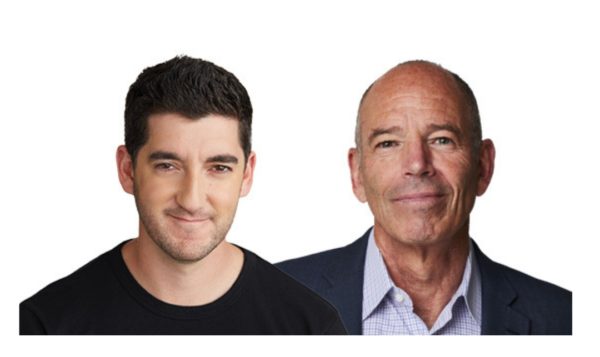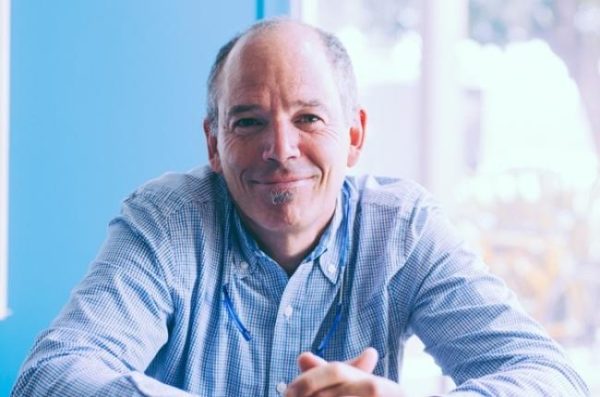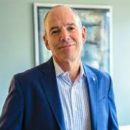Marc Randolph has had a long career that started in the mailroom of a sheet-music company and went on to software and tech startups, including a little DVD-delivery service that revolutionized the entertainment industry and became a streaming giant: Netflix. He talked about the balance of hard work and good fortune that lands someone in the positions he’s been in, plus how the term “entrepreneur” has evolved since his youth into something that is simultaneously overcomplicated and underappreciated.
 THE EVOLUTION OF ENTREPRENEURSHIP
THE EVOLUTION OF ENTREPRENEURSHIP
Erik Huberman: At what point did you decide you wanted to be an entrepreneur?
Marc Randolph: When I got started, there wasn’t such a thing as being an entrepreneur. I mean, certainly, there were entrepreneurs, but it wasn’t a pop-culture thing. There weren’t TV shows about it, there weren’t movies about it, there weren’t podcasts about it, and no one really talked about it. I was just drawn to it, but not necessarily as a career. I just saw myself as a problem fixer. I remember doing door-to-door fundraisers with my sibling and I viewed making the sale as a problem that needed to be solved.
My dad was an investment banker. My mom was a Realtor, she was a real hustler, what we’d call an entrepreneur. We led a comfortable, affluent lifestyle in New York City. My friends’ parents were very successful and very wealthy. And for the large part, none of them seemed particularly happy. They were divorcing or they had kids who wouldn’t talk to them. And it was this interesting lesson that taught me money and happiness are two different axes.
Huberman: Yeah, you’re going to go through a lot of phases as an entrepreneur where you don’t have a lot of money. So if money is motivating you, you’ll burn out.
Randolph: And if you want to do startups, don’t think you have the ability to predict whether this idea that I have is one that’s going to make money or not—you’re going to be disappointed almost all the time. And if you set that as your goal, you’re going to be unhappy with your career, because it’s almost never going to turn out the way you want.
Looking back, I realized how lucky I was that I wasn’t driven by that, because it allowed me to pursue things purely on the criteria of [being] worthy is interesting to me.
Huberman: How did you learn to handle rejection?
Randolph: I’ve always had this mindset that says the interesting thing is solving the problem. And so getting the door slammed in your face, that’s just fine.
I’m not saying I had this theology worked out when I was a kid doing door-to-door fundraising sales, but when you ask how long I’ve been an entrepreneur …, I’ve always been this person who wanted to start something, or build something, or make something, or test something, or sell something. And I was. I did it for years and years and years. So that by the time I actually finally did it in a more conventional commercial entrepreneurial setting, I’d been acting like an entrepreneur for 15 or 20 years already.
Huberman: I’ve seen a lot of people say they’re going to be an entrepreneur, but they have no idea what they’re signing up for.
Randolph: A lot of people think, “Oh, I can’t do this,” because they think that being an entrepreneur requires that I’ve got to quit school, or I gotta quit my job. And I’ve got to hire 18 people, and I need to know how to code and I need to raise [funds] and to do it at that scale.
Yes, you can’t just jump in one day and do it because there [are] a million new skills to learn. But if you do want to be an entrepreneur, it’s not rocket science. It’s anybody really, anybody can do it, you just have to scale your aspirations down to your originating abilities, which usually means you start very small. Work at it, make mistakes, and grow.
Shows like Shark Tank, in some ways, are a disservice because it makes it seem like that’s all entrepreneurship is, is pitching. And once you’ve done that your problems are solved. In fact, it’s a very, very, very small piece of what an entrepreneur actually does.
You need time to develop your skills as an entrepreneur, which is why I tell people you don’t need to launch a big company; do something on the side, a side hustle, a website, something which tends to give you the experience in a low-consequence setting that doesn’t cost any money, that doesn’t require you to quit your job or drop out of school or any of that crap. Because that’s how you build those muscles.
THE SMALL STEPS OF A BIG CAREER
Huberman: Once you were done with door-to-door sales, how did you get started in your career?
Randolph: I started at this sheet-music company and my job was—well now it has a glorified name. Now they call it chief of staff. But basically I was a gopher, and I just followed the CEO around with a pad keeping him on track. It was kind of interesting because I had this front-row seat to what a CEO actually did. I wound up in the mail-order division because it seemed interesting to me. I was fascinated by doing direct sales through the mail. And it’s easy to see how working in a mail room can tie into the business Netflix eventually became.
Huberman: But you were still a ways from that?
Randolph: Yes, eventually I wound up at another company that I helped start, but I wasn’t the CEO. I was running marketing and product management. We started that company, which did a little hardware device, a scanner, which, as a side note, was probably the worst job I ever had, the only job that my wife sometimes reminds me of was when I did not want to get up and go to work.
Huberman: Why?
Randolph: It was a dysfunctional culture. But it taught me a tremendous amount about the importance of culture at a company. So there’s value in that as well.
Almost as a rebound, I left there to go work with two friends of mine to start a software company, mostly because I needed to work with people that I knew and liked. We [started] a small company which sold quality-assurance software, tools for people who did quality assurance for QA. And then another big break.
You’re probably seeing careers are huge amounts of luck. It’s obviously preparation. But it’s also an opportunity. And it’s funny because the people who believe that their success came from them are a little misguided. I mean, sure, you may have some talents. But if you don’t recognize how lucky you were, you’re missing something. And it’s important because you’ve got to have empathy for all the other people who were smarter or harder working than you were but the breaks didn’t go their way. It’s an interesting balance. And you look back, you’re never quite sure which things went well because of you, and which ones were in spite of you. And that’s part of life.
The luckiest part was the company that acquired us was a company that had been founded by and was being run by a guy named Reed Hastings, who played a fairly large role in my life.

STARTING SMALL, POSITIONING BIG
Huberman: Tell us about working with Reed.
Randolph: Reed and I lived in the same neighborhood, so we would carpool to work. And so we came to this agreement that we’d come up with an idea together, that he’d be my angel investor, I’d start and run the company, and he’d be the chair of the board. We needed an idea. And the way we did it was, every morning when Reed would pick me up at my house, I would have a new pitch ready.
I would make my pitch and he would tell me why it wasn’t going to work. And we would argue about this idea. We batted it around from every side for the entire commute, then I’d go back and dig into all these objections he’d made. And we’d argue some more. And we’d eventually come to a consensus that it either had promise or didn’t and it most usually didn’t. Out it would go, and then a couple of days later, OK, I’ve got a new idea.
One day I pitched direct-mail movie rentals. But at that time, of course, there were only VHS tapes, and those were too bulky to be cost-efficient. But then DVDs entered the test market and we came back to this idea.
And then here, this is what entrepreneurs really do: To test this idea while DVDs were in the test market, we went out and bought a music CD and we mailed the CD to Reed’s house and the next morning when he picked me up he had a little envelope with an unbroken CD in it that had gotten to his house in less than a day for the price of a first-class stamp.
That was when we realized this was an idea worth pursuing. If ever there was a light-bulb moment, that was it.
Huberman: Was Netflix immediately a bite?
Marc Randolph: As they say in Silicon Valley: no. When I went around pitching this idea. Everybody said the same thing: You know, that’ll never work. Potential investors said that potential employees said that my wife said that. And everyone had the two same objections. One of those objectives was streaming.
Streaming wasn’t a reality yet, but it was clear the industry was turning toward digital. So we never positioned ourselves as a competitor to Blockbuster. And we didn’t position ourselves as a place for streaming.
We decided to position the company orthogonally, you know, which is delivery agnostic, and we position the company as Netflix is a place to discover great stories, which meant it didn’t make a difference how you received the movie; we wanted you to think of us as a place you came to for entertainment.
Huberman: What is your one piece of advice for someone that you know, whether they’re younger or older, to encourage them to get out and go for it?
Marc Randolph: Stop thinking and start doing. Simple as that. You have this great idea. So what are you waiting for? Yeah, your idea is big. Take that idea, break it apart, pick one piece of it, and start tomorrow to figure out if it can work. That’s what every single successful entrepreneur I know does well. They don’t think, they act.
Listen to the full interview here.
Erik Huberman is founder and CEO of Hawke Media, a full-service outsourced CMO based in Santa Monica, Calif., that launched in 2014 and has been valued at $60 million.















































